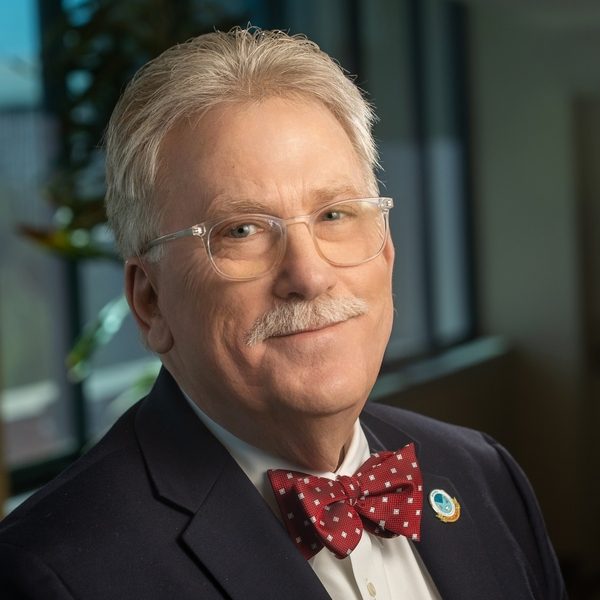To say serving as ACAAI President is simultaneously an incredible honor and humbling experience is a definite understatement. I am very grateful for the outpouring of support that I experienced in Anaheim last month as well as the emails, texts and calls with well wishes and offers to assist me that I have continued to receive. It seemed most reasonable to me to begin my tenure by letting you, the membership, know what to expect from me this next year. I thought I would use this first column to give you a brief insight into what I have in mind for the College in 2024.
First, the College is already an extremely strong organization that has always had the benefit of the practicing allergists/immunologists and our patients at the center of all we do – education, advocacy, support of our profession and guidance of our increasingly diverse and strong organization. I will continue to support and advocate for all of those functions. We have an extraordinary organizational structure with many opportunities for service on various committees and other ad hoc opportunities.
The incredible history of leadership in our organization has produced many broad shoulders on which we currently stand. We have a leadership structure that comes from members who demonstrate their potential through service opportunities. We also are training our next generation of leaders through our annual Leadership Summit. The senior leadership team for the College is the Board of Regents (BOR) and Officers. As President, I function as a Chair of the Board, offering guidance and support for the many programs and services ultimately approved and overseen by the Board. This group of colleagues, with the incredible assistance and support of our College staff, makes our organization the strongest of its kind in the country.
Each year, the President is empowered to develop and initiate an initiative to expand and/or improve this great organization. My initiative for this year is fairly unique to College presidents in that it is actually the second part of a two-year initiative begun by my predecessor, Immediate Past President Kathleen May, MD, FACAAI. Almost three years ago, Kathleen and I began discussions about what areas of improvements for the College we could identify that we might uniquely contribute because of our personal and collective talents, interests and experiences. We realized that with our respective career pathways – hers to academia from a successful private practice and mine as an academic allergist/immunologist (I actually did a short six-month stint in community practice before returning to academia some 34 years ago) — we could pool our efforts into one two-year initiative aimed at fostering and developing strong, lasting partnerships between community and academic allergists/immunologists.
During this past year, the Community and Academic Partnership in Education (CAPE) program was launched. CAPE provides resources for community allergists who wish to develop educational opportunities in their offices aimed specifically at trainees from medical schools around the country without any allergy/immunology faculty. This toolkit has been launched and the CAPE program is well on its way to accomplishing these goals. I intend to fully support the implementation of this effort which will clearly benefit the membership by exposing trainees into what we do for patients on a daily basis. Undoubtedly, this will positively impact future referral patterns for these trainees as they become full-fledged providers.
This year, we will extend the program into scholarship and research with the Community and Academic Allergist Partnership in Education and Research (CAPER). The specifics for this part of the two-year initiative are still in development and I will keep you updated in future columns as we flesh out the program details. What I can tell you now is that we want to provide resources to foster development of collaborative partnerships between academic allergy/immunology investigators and community allergists who may themselves be investigators or may wish to develop this skill set.
The research opportunities will be investigator driven and may vary from specific clinical trials to population-based studies that, for example, may compare different therapies for similar clinical conditions. The focus will be on community-based research that addresses issues with direct application to patient care. The BOR has set aside significant financial resources to fund this initiative and we have formed a CAPER Task Force that will soon begin meeting and planning. The hope is to launch the program sometime next spring. Stay tuned for updates as we progress in our planning.
Finally, let me close by pledging to you my dedication and transparency as I serve the College. Feel free to reach out with suggestions, criticisms, evaluations and volunteerism. I will try to find opportunities to serve in some capacity for all who are interested. My hope and daily prayer will be that I can stand with you to provide shoulders for others to stand on as we all work to build ever stronger structures for our beloved College. I invite you to join me in this journey.
Gailen D. Marshall, Jr., MD, PhD, FACAAI
President

